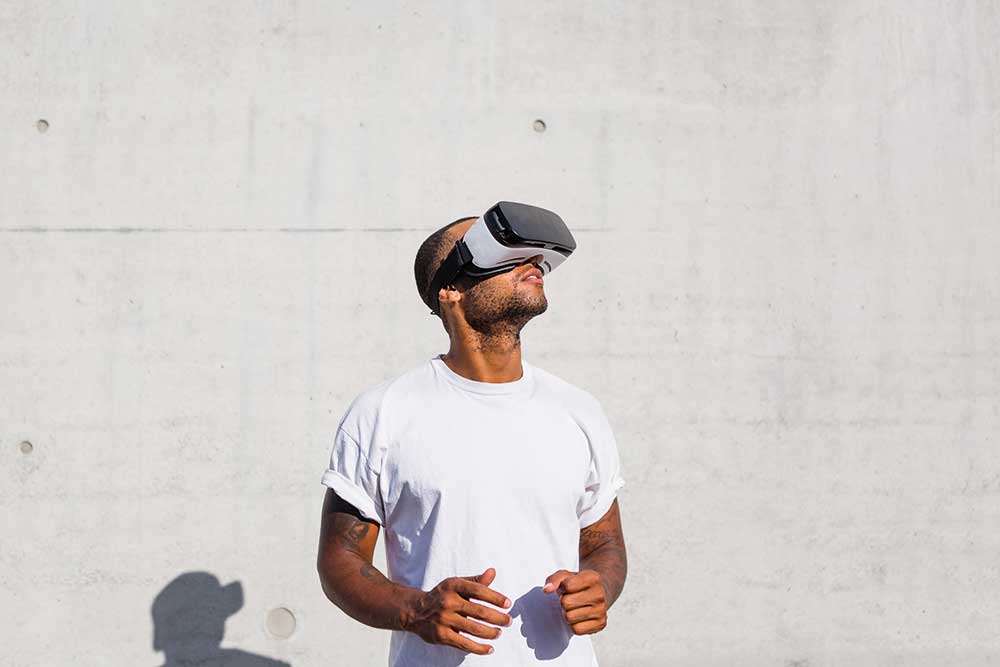Can gaming actually improve brain performance?

Have you ever fired up your games console ‘just for five minutes’, and ended up (unintentionally) squandering many hours you’ll never get back? However, the real question which now arises is are those lost sessions really time wasted?
Picture the scene: I’m out for supper with three ‘tweenagers’ – two glued to iPads, the other fixated on their phone – they barely glance up to grunt when spoken to. It’s all too familiar, whether it’s the kids, your partner or your mate who can’t put their joypad down until they’ve successfully reached the next level.
On telling the kids they were killing their brain cells, Callum (age 11), informed me that to the contrary, he was developing skills crucial in many areas of life. I laughed. Everyone knows how bad computer games are for the old grey matter.
How could he possibly be improving himself playing Fortnite for, well, what felt like a fortnight in the space of one mealtime? “It helps my ability to concentrate”, he retorted. “It encourages teamwork, dexterity, socialisation. It gets you thinking for yourself, gives you quick reflexes. It improves reading ability and imagination. It boosts confidence and self-belief, gives early understanding of skills like driving and map reading. And I’ve made friendships all over the world”.
CONSOLE-ATION PRIZE
It’s a far cry from the stereotypical pasty, sunlight-deprived gamer sat in their room, detached from society, brainwashed into a life of isolation and random acts of unthinkable violence that we often imagine. Perhaps it’s time to give gaming credit where it’s due. A significant number of scientific studies conducted over the past decade back up such anecdotal evidence. A 2013 study from Molecular Psychiatry, conducted by the Max Planck Institute for Human Development alongside the Charité University Medicine St. Hedwig-Krankenhaus, Berlin, found two months spent playing Super Mario 64 for 30 minutes a day increased brain volume in three core regions. In layman’s terms, it equates to a measurable improvement in fine motor skills, memory formation, strategic planning and navigation.
According to study leader Simone Kühn, “This proves specific brain regions can be trained by means of video games.” Astonishingly, those affected by brain degeneration through accidents or mental conditions such as Alzheimer’s, PTSD and schizophrenia could potentially rebuild brain density and therefore improve functioning via video game ‘therapy’.
COIN-OP TO CO-OP
Handily, an article in American Psychologist consolidated 10 years of gaming research and found correlations between playing video games and enhanced problem-solving, creativity, mood, three-dimensional thinking and spatial awareness, as well as decreases in anxiety and stress.
Interestingly, it was also discovered the cooperative enactment of violent games can actually promote cooperation (as opposed to violence) outside the game. Similarly, those who played games with responsibilities for and accountability to their gaming community (or ‘clans’, as they tend to be in gamerworld) are more likely to hold civic roles in real life. The grind of daily life requires perseverance, patience, routine and repetition, common traits endured by gamers for delayed gratification.
Add in the strategy, planning, effective communication, leadership and motivation required for successfully uplevelling, and the benefits of translating these skills into real life become blindingly obvious. From continuing education and climbing the career ladder, to saving for a house or wedding, through dealing with difficult situations, settling issues and resolving conflict, it all helps.
WAR GAMES
But what of riskier business? Taking chances and making snap decisions in life-or-death situations are all very well in VR, but does it really help in real-life situations?
The British Army extensively uses shoot-’em-up-style, 3D virtual reality Combined Arms Tactical Trainer (CATT) games to cement skills such as firing accuracy, weapon deployment and operational communication within virtual battle groups, against an implied enemy, before personnel are unleashed in real-world combat. Similarly, Dutch surgeon Henk O. Ten Cate Hoedemaker of the University of Groningen developed a game to train surgeons. He illustrated 3D games correlate with improved spatial awareness, and made clear links between first-person shooter games and enhanced performance in keyhole surgery. Thankfully, this goes part of the way to disproving the oft-repeated “you’ll get square eyes” war-cry of mothers from a certain generation. However in 2009, the University of Rochester went the whole hog, concluding that gaming can actually improve your eyesight.
So there we have it: plenty of conclusive proof that button-bashing is actually good for you and your career. Treat your life like you’re constantly gaming and you’re bound to level-up.
Ready, player one?











